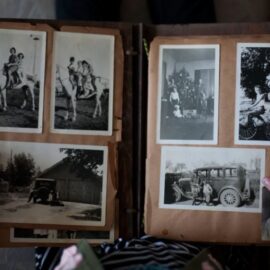
Have you ever wondered why you should love yourself? What if embracing yourself fully could change not just your life, but the world?
In The Body Is Not an Apology, Sonya Renee Taylor explores the transformative power of radical self-love. She presents a journey that goes beyond traditional self-esteem, showing how deep self-acceptance can dismantle oppressive systems.
Keep reading to discover three reasons why you should love yourself, according to Taylor.
Why You Should Love Yourself
Sonya Renee Taylor portrays a deep and transformative journey that transcends traditional ideas of self-esteem, characterizing it as a bold act of unconditional self-love. This method fosters a profound and instinctive re-establishment of the intrinsic worth that’s essential for the deconstruction of suppressive structures and the facilitation of widespread transformation.
A profound journey towards deep self-acceptance begins internally and extends its influence outward, fundamentally altering society with its power. Taylor promotes the idea of freeing ourselves from restrictive thoughts about our bodies and endorses the establishment of equitable power dynamics by acknowledging the legitimacy of our existence. This method requires a persistent and empathetic scrutiny of our actions and intentions, while evaluating ideas that stem from external influences, and advocating for an authentic, unapologetic way of living. Taylor lays out three reasons why you should love yourself.
#1: Radical Self-Love Reconnects Us With Our Inherent Worth
Taylor believes that radical self-love goes beyond mere self-esteem or self-confidence, instilling a profound reconnection with our inherent worth. A bedrock of deep self-acceptance not only strengthens individual ambitions but also cultivates a communal defiance against oppression, going beyond the fleeting satisfaction discovered in self-assurance. Taylor depicts it as a comforting support that fosters a profound re-engagement with one’s own being, rejecting the notion that worth is tied to external validation or physical appearance.
#2: Radical Self-Love Helps Us Overthrow Oppression
Taylor contends that cultivating a deep sense of self-respect is essential in the struggle to dismantle the oppressive systems that perpetuate acts of violence against the body. She stresses the importance of deep self-acceptance as a powerful tool for overthrowing the deep-seated beliefs and norms that subjugate our bodies. We quickly rekindle our innate tendency to affirm ourselves when we cease to rationalize our bodily presence and dismiss the idea that our bodies ought to be associated with embarrassment.
#3: Radical Self-Love Can Change Our Community and the World
Taylor writes that a profound acceptance of ourselves has ripple effects that reach beyond the personal level, impacting communities and resonating around the world. Every small gesture of embracing ourselves unconditionally is embedded in our core and is essential for liberating us from harmful beliefs. She promotes profound self-examination regarding our convictions and actions, emphasizing the significance of collective encouragement over-reliance on individual effort alone. A deep self-love that encompasses all facets of who we are helps to dispel the shame frequently linked to our bodies, illustrating how individual development can impact communities and broader society.
Taylor explores the impact on people when they incorporate life-changing convictions into their everyday routines, stemming from the core idea of unconditional self-acceptance. Adopting a stance of radical self-love acts as a comforting cure that tackles social challenges and fosters change at both the personal and community levels. Taylor advocates for a world where actions, viewpoints, and environments are infused with an ethos of embracing our own bodies, thereby fostering a peaceful coexistence.






